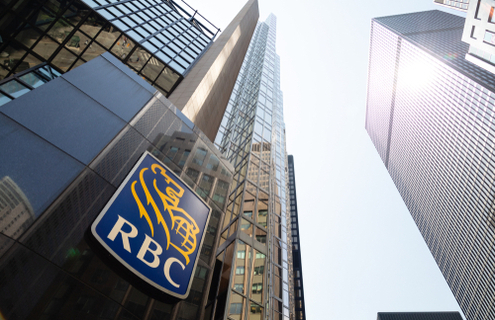Canadian pension plans suffer biggest returns decline for more than a decade in Q1
30 April 2020 Toronto
 Image: CutForGoodPhoto/Shutterstock.com
Image: CutForGoodPhoto/Shutterstock.com
Canadian defined benefit pension plans in the RBC Investor & Treasury Services (RBC I&TS) All Plan Universe experienced the steepest decline since 2008, posting a median return of minus 7.1 percent for Q1.
MSCI World Index posted a quarterly return of minus 13.3 percent, with growth stocks considerably outperforming value stocks.
According to RBC IT&S, while all economic sectors experienced negative returns, energy fared the worst – and information technology took the lead.
RBC I&TS explained that plans with unhedged exposure to non-Canadian equities were somewhat sheltered from local currency losses, as the Canadian dollar weakened against its US counterpart.
The Q1 figures also showed that S&P/TSX Composite Index posted a return of minus 20.9 percent, wiping out the annual gains from 2019 and significantly underperforming the global market.
The impact of the international health crisis was the primary cause, but the dispute over the natural gas pipeline and the Russia-Saudi Arabia oil price war were additional factors.
Elsewhere, FTSE Canada Universe Bond Index posted a quarterly return of 1.6 percent, affording plans some shelter from the losses in equity markets.
RBC I&TS explained that following the cuts to interest rates by the Bank of Canada, the yield curve steepened, and short term bonds outperformed longer-term counterparts.
There was a noticeable flight to safety as investors sold off riskier investments (FTSE Canada High Yield Index, with returns of down 9 percent) and embraced government bonds (FTSE Canada Federal Bond index, with returns of 5.1 percent), RBC I&TS noted.
David Linds, head, Canadian asset servicing, RBC Investor & Treasury Services, says: “It has been an exceptionally difficult period for Canadian pension plans to navigate, as the markets have been experiencing an unprecedented amount of volatility across asset classes.”
Linds adds: “However, the substantial monetary and fiscal policy response from governments across the globe gives us room for optimism. While it’s difficult to speculate on what may happen over the short term, we hope these measures will lead to some reawakening of our economic growth in the near future.”
On 28 April, Northern Trust Universe Data also reported the steepest losses for US institution plan sponsors in Q1.
At the time, Mark Bovier, regional head of investment risk and analytical services at Northern Trust, said: “Poor Q1 performance amid historic volatility in the US and international equity markets drove institutional plan returns for the quarter.”
MSCI World Index posted a quarterly return of minus 13.3 percent, with growth stocks considerably outperforming value stocks.
According to RBC IT&S, while all economic sectors experienced negative returns, energy fared the worst – and information technology took the lead.
RBC I&TS explained that plans with unhedged exposure to non-Canadian equities were somewhat sheltered from local currency losses, as the Canadian dollar weakened against its US counterpart.
The Q1 figures also showed that S&P/TSX Composite Index posted a return of minus 20.9 percent, wiping out the annual gains from 2019 and significantly underperforming the global market.
The impact of the international health crisis was the primary cause, but the dispute over the natural gas pipeline and the Russia-Saudi Arabia oil price war were additional factors.
Elsewhere, FTSE Canada Universe Bond Index posted a quarterly return of 1.6 percent, affording plans some shelter from the losses in equity markets.
RBC I&TS explained that following the cuts to interest rates by the Bank of Canada, the yield curve steepened, and short term bonds outperformed longer-term counterparts.
There was a noticeable flight to safety as investors sold off riskier investments (FTSE Canada High Yield Index, with returns of down 9 percent) and embraced government bonds (FTSE Canada Federal Bond index, with returns of 5.1 percent), RBC I&TS noted.
David Linds, head, Canadian asset servicing, RBC Investor & Treasury Services, says: “It has been an exceptionally difficult period for Canadian pension plans to navigate, as the markets have been experiencing an unprecedented amount of volatility across asset classes.”
Linds adds: “However, the substantial monetary and fiscal policy response from governments across the globe gives us room for optimism. While it’s difficult to speculate on what may happen over the short term, we hope these measures will lead to some reawakening of our economic growth in the near future.”
On 28 April, Northern Trust Universe Data also reported the steepest losses for US institution plan sponsors in Q1.
At the time, Mark Bovier, regional head of investment risk and analytical services at Northern Trust, said: “Poor Q1 performance amid historic volatility in the US and international equity markets drove institutional plan returns for the quarter.”
NO FEE, NO RISK
100% ON RETURNS If you invest in only one securities finance news source this year, make sure it is your free subscription to Securities Finance Times
100% ON RETURNS If you invest in only one securities finance news source this year, make sure it is your free subscription to Securities Finance Times



